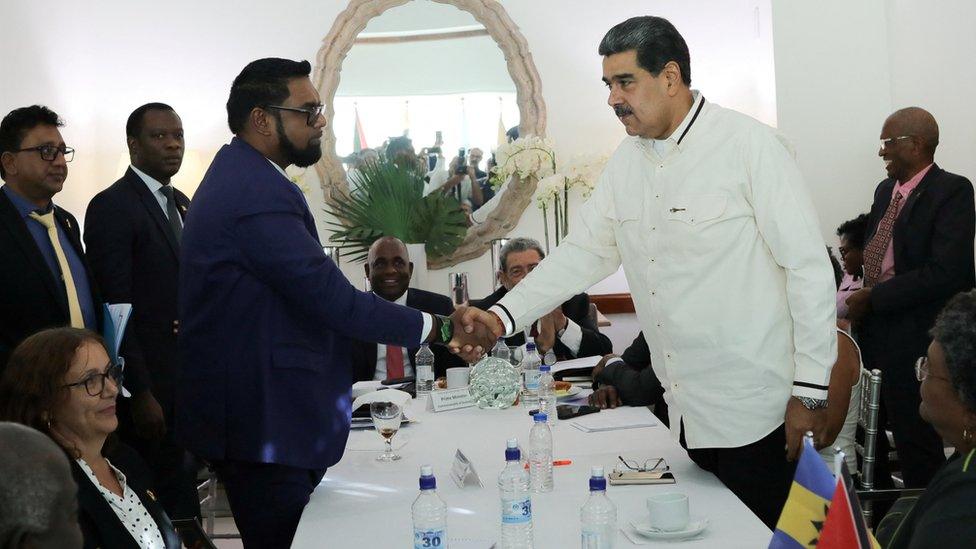Essequibo dispute: Venezuela and Guyana agree not to use force
- Published

Venezuelan President Nicolás Maduro (right) with the President of Guyana, Irfaan Ali
Guyana and Venezuela have agreed to not "use force" to settle their dispute over the oil-rich region of Essequibo.
After meeting Venezuela's President Nicolás Maduro, Guyanese President Irfaan Ali reaffirmed his commitment to peace in the region.
But he said Guyana had the right to exploit their sovereign space.
In a statement on X, Mr Maduro said it had been an "excellent day of dialogue".
Mr Ali and Mr Maduro met in St Vincent and the Grenadines.
In a three-page joint declaration, the countries agreed they would "not threaten or use force against one another in any circumstances" and would "continue dialogue".
They also agreed to establish a joint commission of foreign ministers to address any matters arising over the contested area, and will meet again in Brazil to discuss Essequibo.
Guyana says the issue will be resolved by the International Court of Justice, in The Hague, but Venezuela does not recognise the court's jurisdiction.
Essequibo, a 160,000 sq-km jungle region, covers two-thirds of the Guyanese territory.
It has been the subject of historic dispute between the two countries.
Venezuela renewed its claim to the land following the discovery of oil in waters off Essequibo's coast in 2015.
Mr Maduro previously said he would permit oil exploration in the contested territory but Guyana has already made deals with investors including oil and gas giants Exxon Mobil and Chevron.
At the meeting, Mr Ali wore a bracelet showing a map of Guyana that includes Essequibo and reiterated the dispute must be solved through the ICJ.
"Guyana is not the aggressor, Guyana is not seeking war, but Guyana reserves the right to work with all our partners to ensure the defence of our country," he said.
Guyana's economy is booming largely due to offshore oil reserves, and its output is expected to triple to more than 1.2 million barrels per day by 2027.
Venezuela, which contains the largest proven oil reserves in the world, is in the midst of an economic crisis.
This has been exacerbated by US sanctions imposed on its oil sales over the 2018 election of Mr Maduro.
- Published6 December 2023